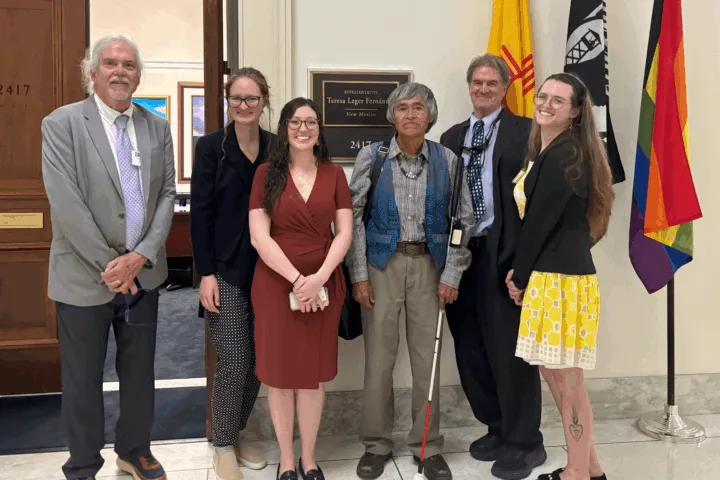Federal Nuclear Safety Oversight at LANL Remains Drastically Understaffed
A recently released report, Office of Enterprise Assessments Targeted Review of Work Planning and Control and Biological Safety at the Los Alamos National Laboratory (LANL), December 2015, explains nuclear safety oversight staffing shortages.
The Office of Enterprise Assessments (EA) is the Department of Energy’s (DOE) organization responsible for assessments of nuclear and industrial safety, and cyber and physical security. DOE has regulatory authority over the radiologic facilities, operations, and wastes of the nuclear weapons complex. (Whereas the State of New Mexico has regulatory authority over non-radiological, hazardous operations and wastes.)
LANL is managed and operated by Los Alamos National Security, LLC with oversight by DOE’s Los Alamos Field Office (NA-LA). On a good day, NA-LA, with around 100 total on staff, would have their hands full providing oversight for LANS’ 13,000 employees and contractors scattered over nearly 40 square miles.
Lack of Safety Oversight Staff, with No Help in Sight
But the recent report (which was investigated in June and July, 2015) explains that NA-LA has funding for only 6 out of the 12 (at the least) required Facility Representative (FR) positions. An FR is defined as an individual assigned responsibility by the local field office for monitoring the safe and efficient performance of a facility and its operations. This individual is the primary point of contact with the contractor for operational and safety oversight.
DOE has a process to determine adequate Facility Representative staffing. The NA-LA FR staffing analysis for 2015 indicated that 17 FRs are needed to cover 13 Hazard Category 2 nuclear facilities, 4 Hazard Category 3 nuclear facilities, 11 High Hazard facilities, 12 moderate hazard facilities, and 7 low hazard facilities. NA-LA figured that only 12 FRs were needed and that 10 were on board. However the current NA-LA organization chart shows 7 FRs, one of whom has been on detail as the acting chief of staff for over a year and has not maintained his FR qualifications. There are no current plans to fill the vacancies. Due to staffing shortages, FR oversight is limited to the nuclear facilities. The bottom line is that the current NA-LA staffing level is 6 FRs fewer than the requirement of 12 stated in the Work Force Analysis and Staffing Plan Report. (Pg. 25)
This staff shortage is exacerbated by the fact that NA-LA has not approved LANS’ contractor assurance system (CAS), which is required by DOE orders. DOE’s version of Contractor Assurance is a contractor-designed and utilized system to manage performance consistent with contract requirements. The system provides transparency between the contractor and DOE to accomplish mission needs, and for DOE to determine the necessary level of Federal oversight.
A rigorous and credible assessment program is the cornerstone of effective, efficient management of programs such as environment, safety, and health; safeguards and security; cyber security; and emergency management.
The NA-LA oversight processes include an evaluation of the CAS primarily through staff assessments. Also, NA-LA annually approves the annual performance evaluation plan, which is an element of the CAS system.
It is NA-LA’s oversight of the 2015 Performance Evaluation Report (which has not yet been publically released) that lead to DOE ending LANS’ contract at LANL in 2017. We give a tip of the hat to NA-LA for being so diligent about poor LANL performance while being so short-handed. It makes me wonder what other problems may be as yet undiscovered. Would the LANL waste drum packing mistake, which shut down the Waste Isolation Pilot Plant (WIPP), have been caught if NA-LA was fully staffed? The estimated cost of reopening WIPP is $.5 billion and climbing.
It is irresponsible for DOE not to provide its Los Alamos Field Office with its required staffing and resources. The lack of oversight is not only dangerous. It can be expensive.
NukeWatch insists that Federal safety oversight of DOE nuclear and hazardous activities be the first priority. Fully staffed oversight is essential for worker and public safety. This will be especially important as the new contractor takes over operations of LANL in 2017.
Taxpayers con not afford to have any less in place.

